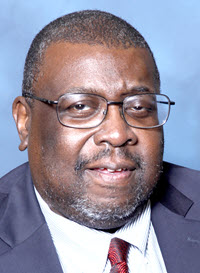Become a Patreon!
Abstract
Excerpted From: John K. Pierre, An Anti-racist Law School Leader's Perspective on Why Historically Black College and University Law Schools Are Needed in the 21st Century, 53 University of Toledo Law Review 287 (Spring, 2022) (47 Footnotes) (Full Document)
 There are currently more than one hundred Historically Black Colleges and Universities (HBCUs) in the United States. Approximately half of the HBCUs are publicly funded and half are privately funded. Of those more than one hundred HBCU institutions, only six have ABA accredited law schools. HBCU law schools comprise only three percent of the nation's ABA accredited law schools, but they produce approximately twenty-five percent of law degrees earned by African Americans.
There are currently more than one hundred Historically Black Colleges and Universities (HBCUs) in the United States. Approximately half of the HBCUs are publicly funded and half are privately funded. Of those more than one hundred HBCU institutions, only six have ABA accredited law schools. HBCU law schools comprise only three percent of the nation's ABA accredited law schools, but they produce approximately twenty-five percent of law degrees earned by African Americans.
II. Challenges Faced By HBCU Institutions
Despite the overwhelmingly laudable accomplishments of HBCU institutions and HBCU law schools, historically and in a contemporary sense, they have sometimes been a source of bewilderment for many policy makers, higher education leaders, and decision makers in the public sector. In the twenty-first century, HBCU institutions and HBCU law schools have faced and are facing many challenges, threats, and opportunities. Budgetary pressures resulting from the great recession in 2008, and the ever-changing political landscape caused many to question the relevancy, role, and need for HBCU institutions and HBCU law schools.
A. HBCUs in the Twenty-first Century
HBCU institutions have been forced to deal with the pain from the challenges posed by the great recession, the COVID-19 pandemic, and other institutional challenges. In Louisiana, the stakes are even greater because budgetary challenges with respect to state appropriations have led to actions that have included consolidations, realignments, and even discussions related to the viability of the Southern University system, the only HBCU system in the United States. The continued viability and necessity of HBCUs have been openly questioned in the twenty-first century. Notwithstanding criticism and questions about their relevance in the twenty-first century, HBCU institutions and HBCU law schools have been and continue to be at the forefront of critical issues confronting higher education in America related to diversity, inclusion, and equity.
[. . .]
HBCU law schools have for more than 150 years provided access to legal education and to the legal profession for African American and other underrepresented and marginalized groups. I invoke the memory of Thurgood Marshall because he, as an anti-racist attorney under the tutelage of Charles Hamilton Houston, Dean of the Howard Law School and Houston's younger cousin Professor William H. Hastie, fought vigorously to diversify the legal profession.
Sadly, Marshall himself was almost a victim of the lack of access to legal education for African Americans. Marshall got his legal education at Howard University Law School--commuting daily from Baltimore to Washington by train-- rather than at the University of Maryland Law School, the state school in his own hometown, because Maryland did not permit Africans to obtain a legal education in Maryland. Marshall also commuted each day to save on living expenses, because he could not afford housing at Howard and could barely afford tuition, in that his mother pawned her wedding and engagement rings to pay his tuition. At Howard, Marshall learned that access to a legal education and skills could make him an outstanding anti-racist lawyer and social engineer, and the preeminent social justice advocate of his time. Marshall litigated cases that opened doors to legal education for African Americans in Maryland, Missouri, Texas, Oklahoma, Arkansas, South Carolina, Louisiana, and Florida. Similarly, HBCU law schools at North Carolina Central University, Texas Southern University, Southern University Law Center, and Florida A&MUniversity opened their doors to African Americans and other students of color, who owe their beginning to the efforts of Thurgood Marshall. As a leader of an HBCU law school, I can attest that HBCU law schools are a national treasure and are needed now more than ever in the twenty-first century.
Chancellor and Vanue B. Lacour, Law Professor at the Southern University Law Center.
Become a Patreon!


